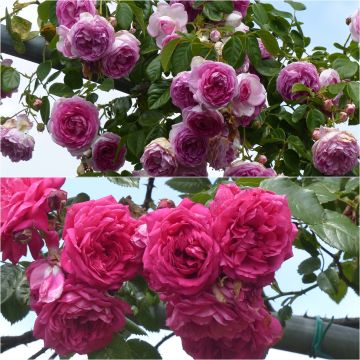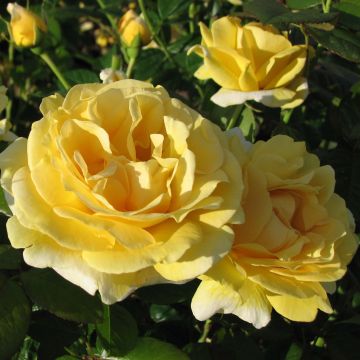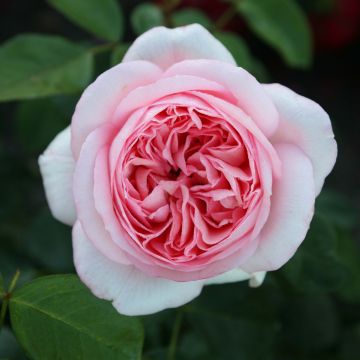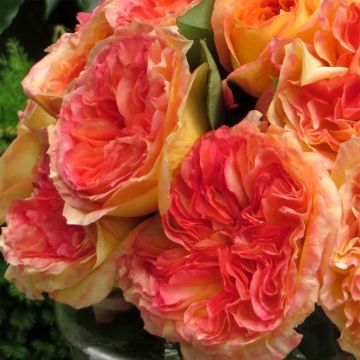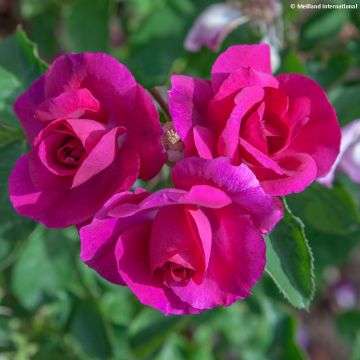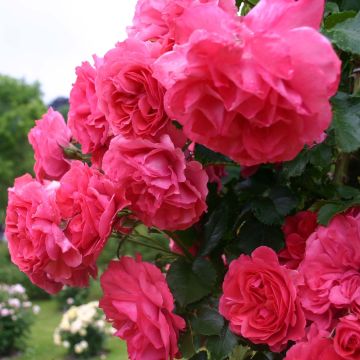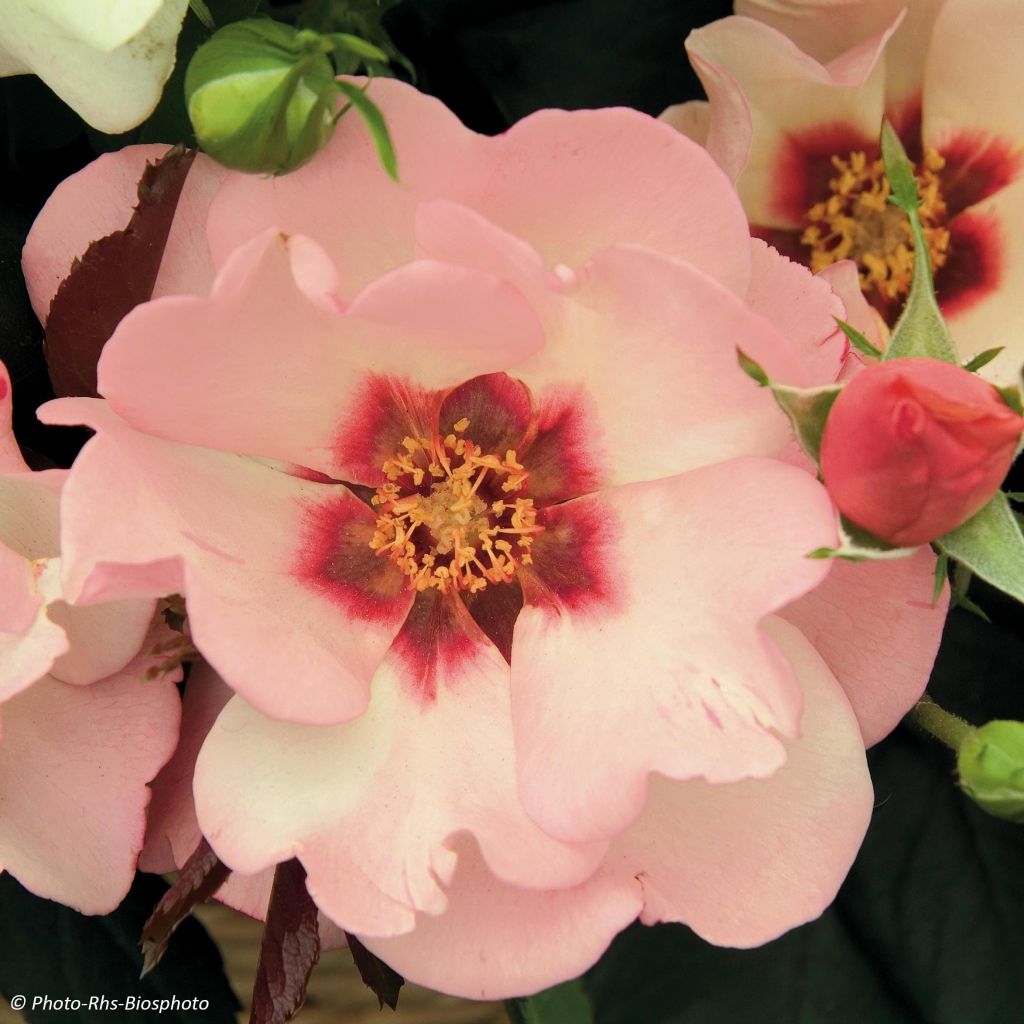

Rosa x persica Alissar Princess of Phoenicia - Hybrid Persian Rose
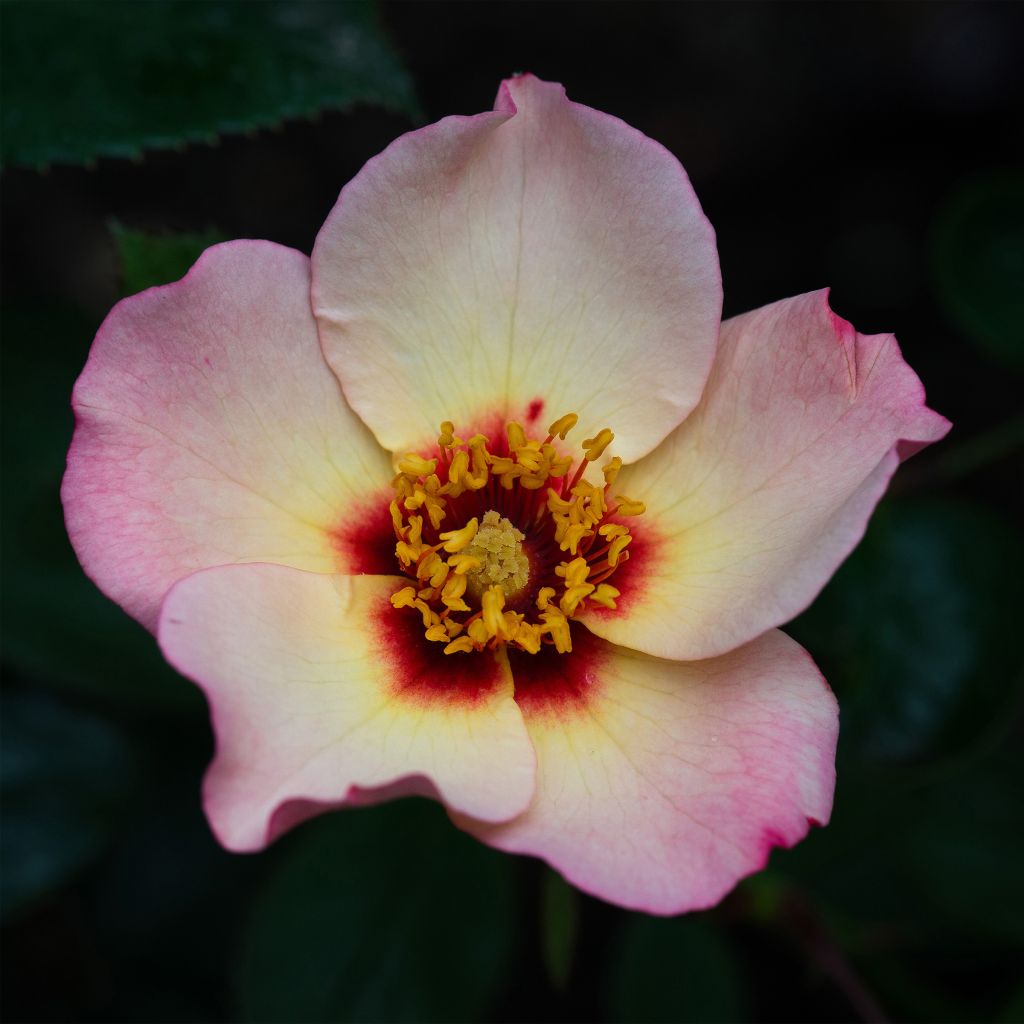

Rosa x persica Alissar Princess of Phoenicia - Hybrid Persian Rose
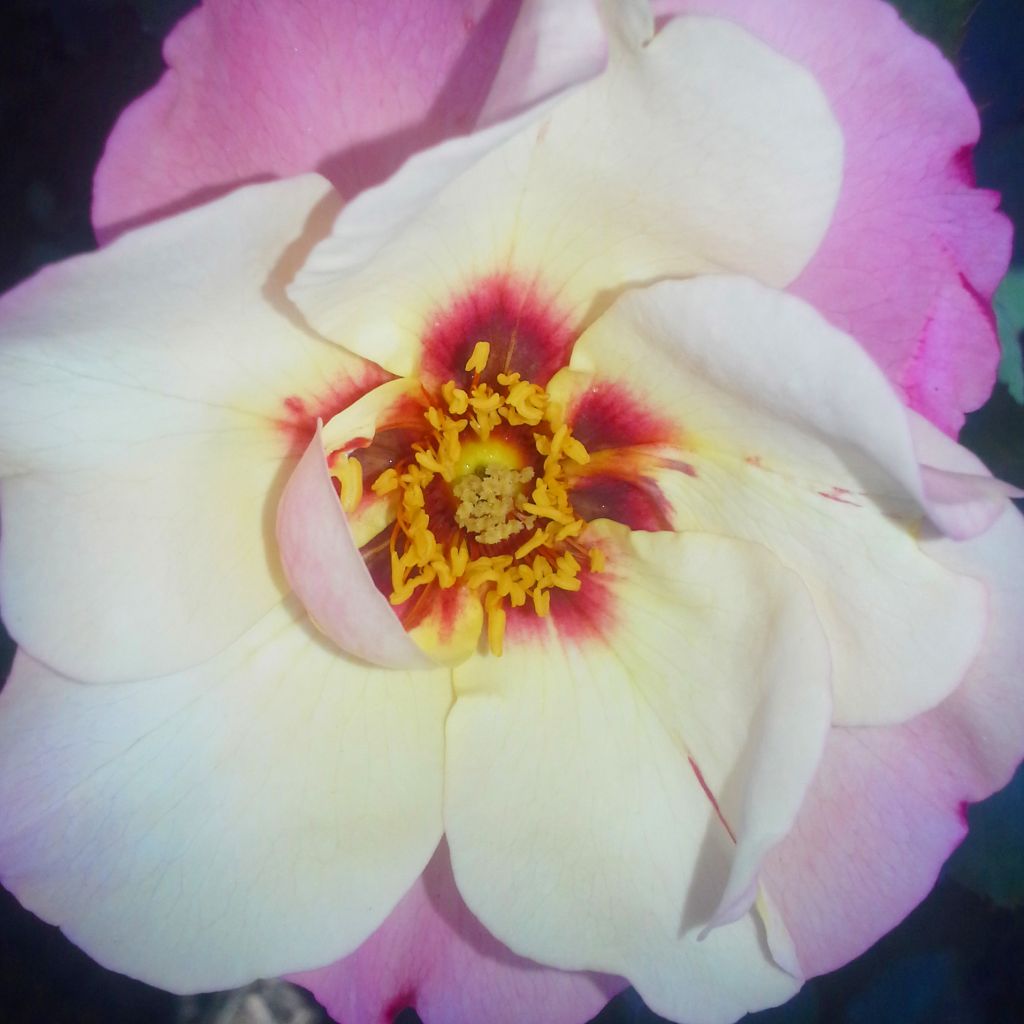

Rosa x persica Alissar Princess of Phoenicia - Hybrid Persian Rose
Rosa x persica Alissar Princess of Phoenicia - Hybrid Persian Rose
Rosa x persica Alissar Princess of Phoenicia (Harsidon)
Hybrid Persian Rose, Hulthemia persica
This item cannot be shipped to the selected country
Delivery charge from €5.90
Delivery charge from €5.90
Delivery to Corse prohibited
More information
Schedule delivery date,
and select date in basket
This plant carries a 24 months recovery warranty
More information
We guarantee the quality of our plants for a full growing cycle, and will replace at our expense any plant that fails to recover under normal climatic and planting conditions.
From €5.90 for pickup delivery and €6.90 for home delivery
Express home delivery from €8.90.
From €5.90 for pickup delivery and €6.90 for home delivery
Express home delivery from €8.90.
Delivery to Corse prohibited: UE law prohibits the import of this plant from mainland France to Corse as part of the fight against Xylella fastidiosa. Please accept our sincere apologies.
More information


Does this plant fit my garden?
Set up your Plantfit profile →
Description
The Rosa 'Alissar Princess of Phoenicia' is a rare rose bush, a wonderful heir of a curious botanical species called Rosa persica, native to the steppe regions of Central Asia. This recent hybrid has, like its parent, delicate flowers resembling a butterfly's flight, with a heart of contrasting colour. Its bicolour roses, in semi-double blooms, first open in a cream tone with a ruby centre, then turn pink with a brownish-red centre. This flowering is perpetual and accompanied by a subtle fragrance. Particularly well-suited to the dry and hot regions of our country, this variety appreciates the sun and well-drained soils.
The Rosa x persica 'Alissar Princess of Phoenicia' descends from a wild rose discovered in 1784 by the botanist André Michaux in the Zagros Mountains, straddling Iran and Iraq. The unique feature of its bicolour flowers has since then prompted rose breeders to attempt hybridisation with other cosmopolitan species and varieties. After years of research and selection, very interesting new cultivars have emerged, particularly from English rose breeder Harkness. 'Alissar Princess of Phoenicia', born in 2010, is one of these varieties with exotic charm, still little known here. It is a bush or a shrub with an upright and bushy habit, reaching a height of 1.10m (4ft) and a spread of 90cm (35in), sometimes more. Its brown branches are moderately thorny and adorned with small, slightly shiny, very healthy dark green foliage. Flowering occurs quite early, in May-June, sometimes as early as April in warm climates, and regularly continues until September-October. The semi-double, flat cup-shaped flowers measure approximately 5 to 8cm (2 to 3in) in diameter. Their fragrance is light but pleasant. The changing colours of the flowers make this wonderful bush a multicoloured bouquet where pink, pale yellow, carmine red, magenta and cream white blend together.
Rare and precious, 'Alissar Princess of Phoenicia' is a special rose for a garden of curious gardeners that deserves a prime location. It will be adopted more than any other in a southern garden, or on a slope, in a large rockery, wherever many classic roses would turn up their noses. It is also hardy enough to withstand our normal winters, which allows it to be adopted almost everywhere. For example, it can be paired with pink or white foxgloves, purple toadflaxes, or pretty grasses like Muhlenbergia capillaris or Stipa capillata. It is also beautiful in front of the mass of tall asters (Aster laevis, Aster turbinellus, Kalimeris mongolica, Solidaster), free in a wild garden, or surrounded by warm hues like the autumn foliage of smoke bushes and deciduous euonymus.
Report an error about the product description
Rosa x persica Alissar Princess of Phoenicia - Hybrid Persian Rose in pictures
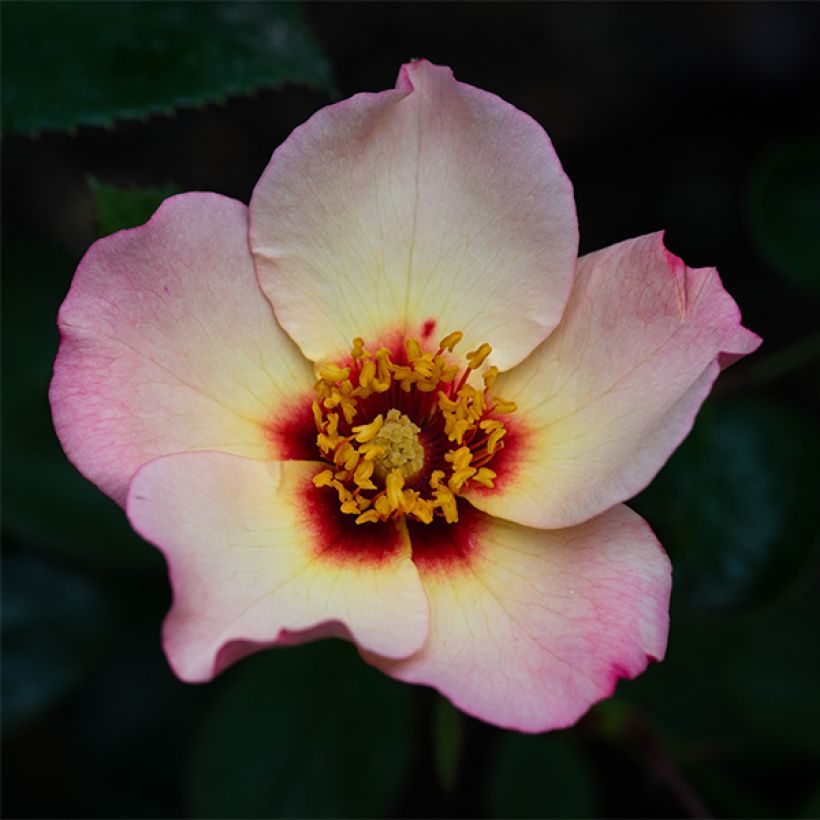

Plant habit
Flowering
Foliage
Botanical data
Rosa
x persica
Alissar Princess of Phoenicia (Harsidon)
Rosaceae
Hybrid Persian Rose, Hulthemia persica
Cultivar or hybrid
Rosa canina Laxa (4L/5L pot, Wrapped bare root)
Other Roses A to Z
Planting and care
The Alissar Princess of Phoenicia rose is not demanding when it comes to the nature of the soil, but it fears an excess of limestone and heavy, suffocating soils. It thrives in sufficiently sunny regions, up to an altitude of 1000 m (3281ft), and is not afraid of diseases, cold, or drought once well established. It adapts to all gardens, as long as it is well cared for! Plant it in well-worked and properly drained ordinary soil and in a sunny exposure. It may be helpful to remove dead wood in winter.
Planting period
Intended location
Care
-
, onOrder confirmed
Reply from on Promesse de fleurs
Haven't found what you were looking for?
Hardiness is the lowest winter temperature a plant can endure without suffering serious damage or even dying. However, hardiness is affected by location (a sheltered area, such as a patio), protection (winter cover) and soil type (hardiness is improved by well-drained soil).

Photo Sharing Terms & Conditions
In order to encourage gardeners to interact and share their experiences, Promesse de fleurs offers various media enabling content to be uploaded onto its Site - in particular via the ‘Photo sharing’ module.
The User agrees to refrain from:
- Posting any content that is illegal, prejudicial, insulting, racist, inciteful to hatred, revisionist, contrary to public decency, that infringes on privacy or on the privacy rights of third parties, in particular the publicity rights of persons and goods, intellectual property rights, or the right to privacy.
- Submitting content on behalf of a third party;
- Impersonate the identity of a third party and/or publish any personal information about a third party;
In general, the User undertakes to refrain from any unethical behaviour.
All Content (in particular text, comments, files, images, photos, videos, creative works, etc.), which may be subject to property or intellectual property rights, image or other private rights, shall remain the property of the User, subject to the limited rights granted by the terms of the licence granted by Promesse de fleurs as stated below. Users are at liberty to publish or not to publish such Content on the Site, notably via the ‘Photo Sharing’ facility, and accept that this Content shall be made public and freely accessible, notably on the Internet.
Users further acknowledge, undertake to have ,and guarantee that they hold all necessary rights and permissions to publish such material on the Site, in particular with regard to the legislation in force pertaining to any privacy, property, intellectual property, image, or contractual rights, or rights of any other nature. By publishing such Content on the Site, Users acknowledge accepting full liability as publishers of the Content within the meaning of the law, and grant Promesse de fleurs, free of charge, an inclusive, worldwide licence for the said Content for the entire duration of its publication, including all reproduction, representation, up/downloading, displaying, performing, transmission, and storage rights.
Users also grant permission for their name to be linked to the Content and accept that this link may not always be made available.
By engaging in posting material, Users consent to their Content becoming automatically accessible on the Internet, in particular on other sites and/or blogs and/or web pages of the Promesse de fleurs site, including in particular social pages and the Promesse de fleurs catalogue.
Users may secure the removal of entrusted content free of charge by issuing a simple request via our contact form.
The flowering period indicated on our website applies to countries and regions located in USDA zone 8 (France, the United Kingdom, Ireland, the Netherlands, etc.)
It will vary according to where you live:
- In zones 9 to 10 (Italy, Spain, Greece, etc.), flowering will occur about 2 to 4 weeks earlier.
- In zones 6 to 7 (Germany, Poland, Slovenia, and lower mountainous regions), flowering will be delayed by 2 to 3 weeks.
- In zone 5 (Central Europe, Scandinavia), blooming will be delayed by 3 to 5 weeks.
In temperate climates, pruning of spring-flowering shrubs (forsythia, spireas, etc.) should be done just after flowering.
Pruning of summer-flowering shrubs (Indian Lilac, Perovskia, etc.) can be done in winter or spring.
In cold regions as well as with frost-sensitive plants, avoid pruning too early when severe frosts may still occur.
The planting period indicated on our website applies to countries and regions located in USDA zone 8 (France, United Kingdom, Ireland, Netherlands).
It will vary according to where you live:
- In Mediterranean zones (Marseille, Madrid, Milan, etc.), autumn and winter are the best planting periods.
- In continental zones (Strasbourg, Munich, Vienna, etc.), delay planting by 2 to 3 weeks in spring and bring it forward by 2 to 4 weeks in autumn.
- In mountainous regions (the Alps, Pyrenees, Carpathians, etc.), it is best to plant in late spring (May-June) or late summer (August-September).
The harvesting period indicated on our website applies to countries and regions in USDA zone 8 (France, England, Ireland, the Netherlands).
In colder areas (Scandinavia, Poland, Austria...) fruit and vegetable harvests are likely to be delayed by 3-4 weeks.
In warmer areas (Italy, Spain, Greece, etc.), harvesting will probably take place earlier, depending on weather conditions.
The sowing periods indicated on our website apply to countries and regions within USDA Zone 8 (France, UK, Ireland, Netherlands).
In colder areas (Scandinavia, Poland, Austria...), delay any outdoor sowing by 3-4 weeks, or sow under glass.
In warmer climes (Italy, Spain, Greece, etc.), bring outdoor sowing forward by a few weeks.



































